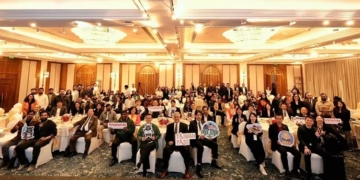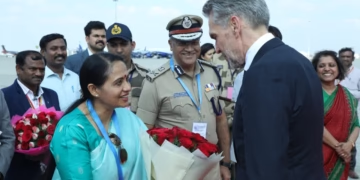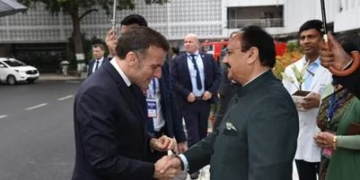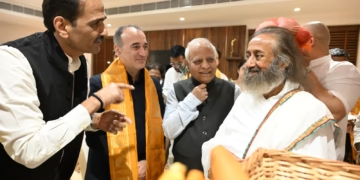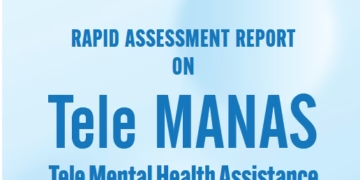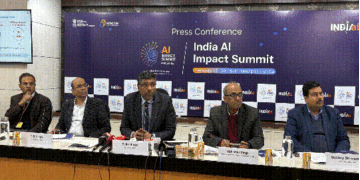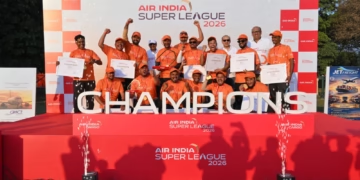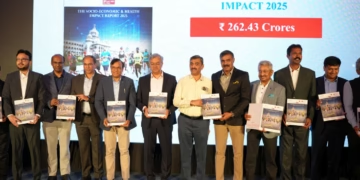PM Modi’s commitment to the welfare of the people of J&K reflects in his over 35 visits to J&K in recent years:
“Under Prime Minister Modi’s leadership, human rights governance has become a priority, with the Human Rights Commission playing an active and responsive role”, Says Dr. Jitendra Singh
NHRC Member Priyank Kanungo calls on Jitendra Singh
Union Minister of State (Independent Charge) for Science and Technology, Minister of State (Independent Charge) for Earth Sciences, Minister of State in the Prime Minister’s Office, Department of Atomic Energy, Department of Space, and Personnel, Public Grievances, and Pensions, Dr. Jitendra Singh was briefed today by the National Human Rights Commission (NHRC) Member, Priyank Kanungo about the human rights concerns of the terrorism affected families of Jammu & Kashmir, notably and particularly the Kashmiri Pandits.
Kanungo told the Minister that the National Human Rights Commission is very conscious of its responsibility to safeguard the human rights of every section of society, particularly those like the Kashmir Pandit community who suffered killings and hardship for three long decades, but were denied their due or justice by the earlier governments.
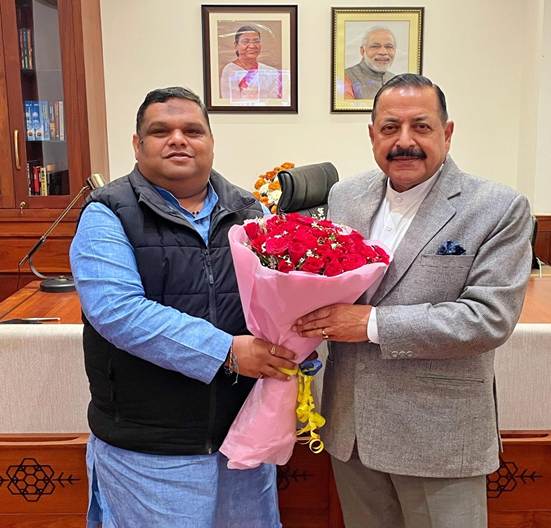
National Human Rights Commission (NHRC) Member, Priyank Kanungo calling on Union Minister Dr. Jitendra Singh at New Delhi.
Dr. Jitendra Singh highlighted the nationalist credentials of the Kashmiri Pandit community and said that their welfare and concern have always been at the core of Prime Minister Narendra Modi’s priorities.
Emphasizing the longstanding and tragic history of the Kashmiri Pandit exodus, Dr. Jitendra Singh stated, “The plight of Kashmiri Pandits remains unique, as they were made refugees within their own country overnight.” He praised the Modi government’s commitment to the welfare of these families, citing the Prime Minister’s over 35 visits to J&K, which had played a significant role in implementing welfare initiatives, including the provision of separate accommodations for Pandit families and efforts to reintegrate them into the broader Kashmiri society.
In addition to these welfare measures, Dr. Jitendra Singh also highlighted infrastructure developments in the region aimed at reducing physical and emotional distances. He pointed to expanded train networks and express corridors that have enhanced all-weather connectivity to ensure smoother travel and communication.
The Minister expressed confidence in the government’s approach to improving the human rights situation in the region and assured that both the Department of Administrative Reforms and Public Grievances and Department of Personnel and Training (DoPT) along with NHRC would collaborate effectively. He stated, “We will ensure an institutionalized mechanism to address citizens’ grievances, working in synergy with the NHRC to ensure that the citizens’ rights are safeguarded.”
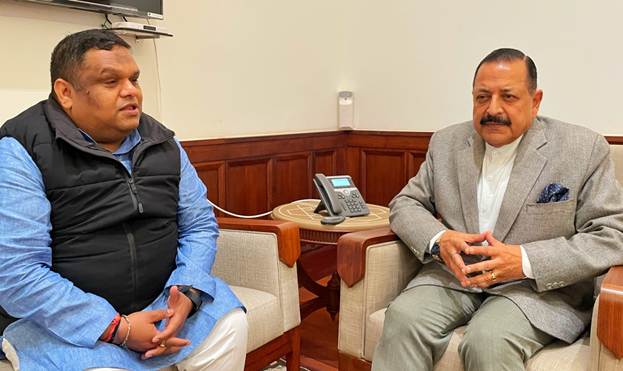
Dr. Jitendra Singh spoke of the role of human rights in governance, reiterating that under Prime Minister Modi’s leadership, human rights governance has become a priority, with the Human Rights Commission playing an active and responsive role. As a part of this, the DoPT seeks to integrate human rights values into its training programs for government officials.
Dr. Jitendra Singh observed that sensitive officers, equipped with both emotional intelligence and intellectual capability, would be key to furthering the cause of human rights in India. These officers, once sensitized on human rights issues, could serve as patrons of human rights within their respective departments and communities, he added.
Dr. Jitendra Singh expressed delight and confidence in the appointment of Priyank Kanungo as a member of the National Human Rights Commission. He praised Kanungo for his commitment to the cause of the welfare and protection of human rights of citizens and recalled his earlier stint as Chairman of National Commission for Protection of Child Rights (NCPCR).
In conclusion, Dr. Jitendra Singh wished that NHRC would continue to work together to ensure that the rights of every citizen are safeguarded.
The National Human Rights Commission of India (NHRC) is a statutory body constituted on 12 October 1993 under the Protection of Human Rights Ordinance of 28 September 1993. The NHRC is responsible for the protection and promotion of human rights, which is defined by the act as rights relating to life, liberty, equality and dignity of the individual guaranteed by the Constitution of India.



